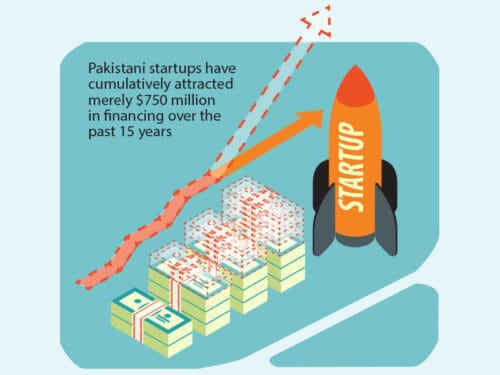Despite immense potential, Pakistani startups have only managed to attract a modest $750 million in funding over 15 years. With a vibrant youth population and high technology adoption rates, why is Pakistan’s startup ecosystem not thriving as it should? Let’s dive into the key challenges and potential solutions for scaling this critical sector.
📉 The State of Startup Funding in Pakistan
The numbers reveal a troubling reality:
- Total funding in 15 years: $750 million.
- Early-stage focus: 95% of this funding is limited to seed and pre-seed stages.
- Advanced funding rarity: Only 5-6 startups reached Series A, and just one made it to Series B.
- Successful exits: Only three startups have managed to sell their businesses, including Tameer Bank and Daraz.
These figures highlight a critical gap in funding needed to propel startups beyond their initial stages into sustainable, scalable ventures.
🔑 Challenges Facing Pakistani Startups
Several obstacles prevent startups from realizing their full potential:
1. Economic Risks
Pakistan’s economic instability deters international investors, who prefer safer markets.
2. Definition Dilemmas
The absence of a standard startup definition creates regulatory inconsistencies:
- State Bank of Pakistan (SBP): Defines startups as entities up to five years old.
- Federal Board of Revenue (FBR): Considers them startups for up to 10 years.
3. Banking Sector Limitations
- High-risk aversion: Banks avoid funding startups due to their 90% failure rate.
- Preference for T-bills: Commercial banks predominantly invest in government securities, leaving little for private sector initiatives.
🚀 Why Startups Matter for Pakistan
Startups can be game-changers for Pakistan’s economy, as highlighted by Finance Minister Muhammad Aurangzeb:
- Economic growth: Startups foster innovation and spur economic activity.
- Financial inclusion: Tech-driven solutions can help serve the country’s unbanked population.
- Digital transformation: Startups drive advancements in fintech, agritech, and edtech, among others.
🌟 Proposed Solutions to Boost Funding
Nadeem Hussain, founder of Telenor Microfinance Bank (easypaisa), and other experts propose the following steps:
1. Mandate Bank Contributions
- Require commercial banks to allocate a portion of earnings from T-bills toward startup financing.
2. Regulatory Support
- SECP initiatives:
- Regulatory Sandbox: Provides a controlled environment to test innovative ideas.
- LEAP Program: Focuses on unlocking growth in sectors like fintech.
3. Clear Definitions and Policies
- Develop a unified, national definition of startups to streamline funding and regulatory processes.
4. Private Sector Involvement
- Encourage corporate giants to mentor, fund, and collaborate with startups.
🌐 Building a Thriving Startup Ecosystem
The Securities and Exchange Commission of Pakistan (SECP) is committed to driving innovation. Chairman Akif Saeed stated:
“Our goal is not merely to adapt to change but to drive it. We aim to build systems that empower innovators while creating a stable environment for growth.”
SECP’s efforts, combined with support from the private sector and international investors, could transform Pakistan into a regional innovation hub.
📢 Call to Action
Pakistan’s startup ecosystem is at a crossroads. It’s time for all stakeholders—government, banks, private investors, and innovators—to come together.
💡 Join the Movement:
- Entrepreneurs: Leverage platforms like the SECP Regulatory Sandbox to bring your ideas to life.
- Investors: Explore untapped opportunities in one of the world’s most promising emerging markets.
- Policymakers: Create a unified framework to support startups.
Let’s work collectively to unlock the immense potential of Pakistan’s startup ecosystem and create a brighter future for all.
















